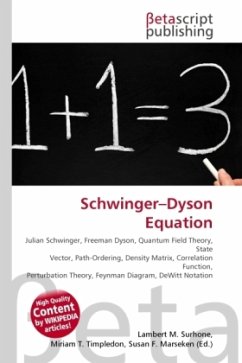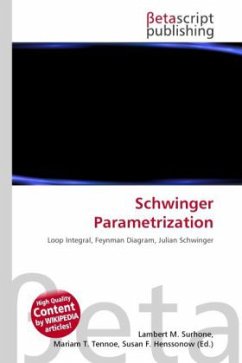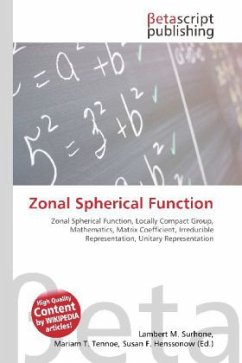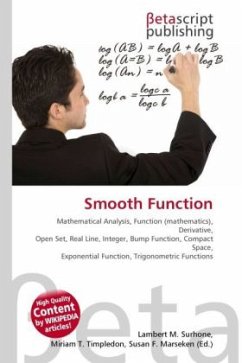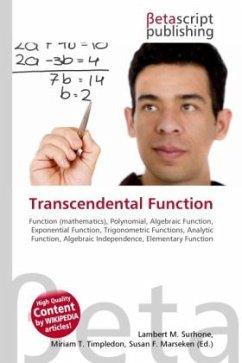
Schwinger Function
Versandkostenfrei!
Versandfertig in 6-10 Tagen
19,99 €
inkl. MwSt.

PAYBACK Punkte
10 °P sammeln!
High Quality Content by WIKIPEDIA articles! In quantum field theory, the Wightman distributions can be analytically continued to analytic functions in Euclidean space with the domain restricted to the ordered set of points in Euclidean space with no coinciding points. These functions are called the Schwinger functions, named after Julian Schwinger, and they are analytic, symmetric under the permutation of arguments, Euclidean covariant and satisfy a property known as reflection positivity. Pick any arbitrary coordinate and pick a test function fN with N points as its arguments. Assume fN has i...
High Quality Content by WIKIPEDIA articles! In quantum field theory, the Wightman distributions can be analytically continued to analytic functions in Euclidean space with the domain restricted to the ordered set of points in Euclidean space with no coinciding points. These functions are called the Schwinger functions, named after Julian Schwinger, and they are analytic, symmetric under the permutation of arguments, Euclidean covariant and satisfy a property known as reflection positivity. Pick any arbitrary coordinate and pick a test function fN with N points as its arguments. Assume fN has its support in the "time-ordered" subset of N points with 0 1 ... N. Choose one such fN for each positive N, with the f's being zero for all N larger than some integer M. Given a point x, let scriptstyle bar{x} be the reflected point about the = 0 hyperplane. Then,



